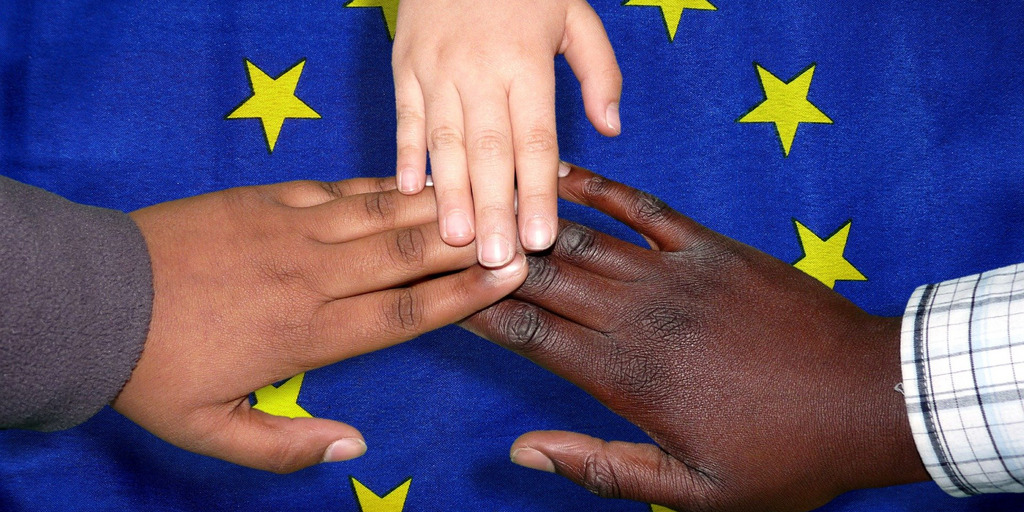by Jess Smee
A “European solution to restore citizens' confidence,” was how European Commission head Ursula von der Leyen described the European Union’s long-delayed plan to overhaul the bloc’s migration and asylum policy in late September.
But, her hard sell will fail to persuade many in the divided bloc, which is split between the Mediterranean-shore countries where refugees often land, richer northern states where many hope to settle —as well as the notoriously truculent eastern nations.
Particularly controversial is the EU’s pledge to oblige each state to host some refugees - a country would receive 10,000 euros ($11,750) for each adult taken in. This type of mandatory proposal has long been rejected out of hand by Poland and Hungary.
The recently released Bertelsmann Stiftung’s Sustainable Governance Indicators (SGI) 2020 survey into the integration of immigrants illustrates the wide opinion gap and contrasting approaches different nations have towards newcomers. The SGI survey, which encompasses both legal migrants and refugees, shows that the most welcoming nation in Europe is Portugal, which has policies that “effectively” support the integration of migrants into society, earning it a nine out of a possible ten points. “Portugal has sought to be a leader at the EU level with regard to refugees and migrants, advocating a liberal position. It has consistently shown a willingness to take in refugees,” it writes, highlighting how Portugal, despite its size, had taken in the sixth highest number of refugees as part of the EU resettlement program. This contrasts starkly with Poland under the notoriously anti-immigrant PiS Law and Justice Party, which comes last in the SGI ranking of 41 nations in terms of its integration, scoring just three points out of a possible ten.
The Moria effect
Past EU immigration plans have foundered on criticism from a handful of member states. After the new proposal was unveiled, a senior diplomat from one of the eastern EU countries told Reuters that mandatory distribution of asylum seekers “is a no go for us”, suggesting that this latest proposal is likely to become the latest of a number of flopped bids to reshape EU migration policy.
According to the Commission, the EU now receives up to 1.5 million net new foreigners coming legally to live and work per year, compared to only 140,000 asylum seekers arriving irregularly.
Earlier this month, images of fires raging in the overcrowded Greek refugee camp Moria went around the world and triggered a divisive debate within the bloc about which nations would take in any of the near 13,000people left without shelter.
Von der Leyen described Moria as “a stark reminder” but responses to the humanitarian emergency varied dramatically around the bloc. Germany, SGI’s second highest scoring European nation for integrating immigrants, pledged to take in more than 1,500 people. Belgium, meanwhile, pleaded “limited capacity,” agreeing to take just 12 minors while the conservative Austrian chancellor Sebastian Kurz vowed "not to follow the German path."
Covid-19 widens divisions
The Moria camp on the Island of Lesbos was under quarantine after a coronavirus outbreak when the fires were started, symbolizing how the global pandemic was piling pressure on those most at risk, as well as those hosting them.
Attitudes towards refugees have hardened amid the spread of Covid-19, not to mention its economic and social impact. Early in the outbreak, the Portuguese government stood out among European nations by granting temporary citizenship rights to all migrants and asylum seekers who have residency applications underway — aiming to ensure that everybody has access to social security and health care.
Elsewhere in Europe, fear of infection and economic insecurity have fueled anti-immigrant sentiment. For example, in Italy, one of the first European countries to be hit by the pandemic, Sicily’s president Nello Musumeci, ordered the closure of all migrant centers on the island, stressing that it was impossible to halt coronavirus from spreading within the facilities. His move was blocked by a court, but his statement highlights how fears about the disease are fanning an already polarized debate on immigration.
Far-right-wing politicians from across the bloc have seized on the virus as a new rationale for keeping newcomers out. Matteo Salvini, the leader of the anti-immigrant League party, described Sicily as an “outlaw state” on Twitter earlier this month. “An invasion of illegal migrants, a boom of infections, Sicily is collapsing,” he tweeted.
The humanitarian consequences of this spike in fear and populism are already playing out on Europe’s coastlines. A ship carrying hundreds of migrants from Africa and the Middle East, about 20 of whom had tested positive for Covid-19, recently traveled back and forth through the waters around Sicily, turned away by numerous mayors until they were eventually allowed to dock in Augusta, in the southeast.
As she talked up the EU’s new plan, von der Leyen forecast it would “rebuild trust between member states”. In the context of deeply polarized political positions among the 27-states, as well as new corona-era fears and hardships, political and economic self-interest will likely postpone the rebuilding of trust for the foreseeable future.
Jess Smee is a Berlin-based journalist who writes for The Guardian newspaper among others. She is an editor for SGI News and the Bertelsmann Stiftung's BTI Blog.
First published by The EU Observer




